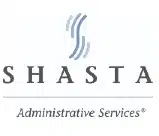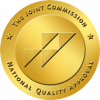When drug abuse in teens is identified and treated early on, the chances for achieving long-term recovery are exponentially improved. That’s why it’s so important for parents, teachers, and other adolescent mentors to learn the warning signs of substance abuse in teens.
Adolescence is a critical risk period for substance abuse. The earlier teen drug use begins, the higher the risk for substance use disorder in adulthood. Catching the problem as quickly as possible is essential for a young person’s future health and well-being.
Why Do Teens Use Drugs?
Before learning how to know if your teen is using drugs, it’s helpful for parents to understand why an adolescent might be using substances. There are a variety of reasons why teens use drugs, including:
- Curiosity and experimentation
- Peer pressure and trying to fit in
- Pressure to perform academically or in sports
- Pain relief after an injury
- Media influence: Studies show that teens who watch movies that depict substance use are more likely to copy these behaviors
- Risk-taking as a way to feel more independent.
However, the primary reason for drug abuse in teens is the need to self-medicate emotional pain. Substance abuse becomes a way to escape distressing feelings, relationships, or circumstances.
Drug Use Among Youth: Facts and Statistics
Knowing what percent of teens do drugs can help families feel less alone. Unfortunately, drug abuse in teens is common. Half of all adolescents use illicit drugs, according to the Monitoring the Future (MFT) survey, published biannually by the National Institute on Drug Abuse. Marijuana use has increased more than any other illicit drug: Daily marijuana use has risen significantly among high school students over the past decade due to accessibility to these types of drugs in high school.
The most recent teen substance use statistics reflect an overall decline in teen drug abuse, due to limited availability of substances during the pandemic. However, for many teens, the stressors of the pandemic were directly related to increased use of illicit substances. Moreover, some studies show that prescription drug abuse in teens also went up. Experts believe these increases are the result of the high levels of collective trauma, anxiety, and depression teens have experienced since 2020. The multifaceted impact of the pandemic has exacerbated the existing youth mental health crisis.
Causes of Teenage Substance Abuse
When a teen is using substances to the point of dependence, the cause is typically an underlying mental health issue, such as anxiety, depression, trauma, or another mood or personality disorder. Furthermore, drug abuse in teens makes those underlying mental health disorders worse. In one study, researchers examined data on teens who were using prescription drugs for non-medical reasons. They found that this group was almost three times as likely to report a suicide attempt within one year of the substance abuse, as opposed to teens who did not misuse prescription drugs. For youth who abused prescription painkillers in particular, the risk of a suicide attempt was even higher.
More About Substance
Abuse
More About Substance Abuse
Risk Factors for Teen Drug and Alcohol Use
Not all adolescents who experiment with drugs become addicted. There are specific risk factors for teen drug abuse that make it more likely that they will start using substances and also more likely that they will become dependent on them. These include the following:
- Mental health issues: As we have discussed, drug abuse in teens is usually a symptom of an underlying mental health disorder.
- Family history of substance use: When parents, siblings, or extended family members have a history of addiction, teens are more likely to develop a substance abuse problem.
- Age when a teen first uses drugs: The younger they are when they start using substances, the higher the risk of addiction. Early drug abuse in teens disrupts brain development, wiring the brain for addiction.
- Parental attitudes that normalize substance use: If parents use drugs or are accepting of substance use, teens are usually more likely to try drugs themselves. They may also have more access to substances.
- Poor parental monitoring: Adolescents with less supervision are at higher risk for teen drug abuse.
- Family rejection due to gender identity or sexual orientation: LGBTQ youth have higher rates of teen drug abuse, according to the Trevor Project. In addition, substance use among LGBTQ teens is associated with higher odds of a suicide attempt.
- Childhood trauma: A Columbia University study of 10,000 US teens found that adolescents who experienced psychological trauma, especially abuse and domestic violence, prior to age 11 were more likely to experiment with drugs in adolescence.
Effects of Substance Abuse on Youths
The negative effects of drug abuse in teens permeate all aspects of an adolescent’s life. Family relationships and peer friendships, academics and career planning, physical and mental health are all severely undermined—if not devastated—by teen drug abuse. Brain functioning and development may be disrupted, affecting executive function and cognitive ability.
Research on teens and drug abuse shows the lifelong effects of substance abuse on youths. Teens with untreated substance use disorders will go on to experience higher rates of physical illness, poorer overall health and well-being, and greater risk for addiction later in life. That’s why doing careful research and choosing the highest-quality teen rehab treatment is crucial.

How to Know If Your Teen Is Using Drugs
What are the warning signs of addiction in teens? There are both behavioral and physical signs of drug use in teens. The behavioral signs of teen substance use sometimes resemble typical teen angst or rebellion. However, there are also physical signs of drug use in teens that parents should be familiar with. Taken together, these early signs of teen substance abuse can help identify when a teen is struggling.
10 Physical Signs of Teen Substance Abuse
- Bloodshot or watery eyes
- Runny nose, frequent nosebleeds
- Sudden, unexplained weight loss or gain
- Shaking and tremors
- Poor hygiene and diminished personal appearance
- Smell of smoke on breath or clothes
- Compulsive eating, frequent hunger
- Puffy, swollen face
- Either fatigue or hyperactivity
- Wearing inappropriate clothing, such as long sleeves in summer to hide needle marks
10 Behavioral Signs of Drug Use in Teens
- Emotional instability, extreme moodiness
- Loss of interest in once-favored activities
- Feelings of intense sadness
- Irritability, anger, aggression
- Difficulty staying focused, causing problems in school
- Secretive behavior, territorial, hiding in their room
- Stealing, unexplained need for money
- Sleeping more than usual, staying in bed all day
- Avoiding eye contact, withdrawing into their shell
- Replacing longtime friends with a new friend group
Teen Substance Abuse: Diagnosis and Treatment
The first step in accessing help when an adolescent shows signs of teen substance abuse is a confidential assessment with a clinical professional. An assessment should cover physical, psychological, and behavioral warning signs of addiction in teens. A healthcare provider may also perform lab tests to determine whether substance use has affected the adolescent’s bodily systems.
As part of the assessment, a mental health professional can also recommend options for treatment and go over the various levels of care available for addressing drug abuse in teens. Both residential and outpatient programs for teen substance abuse are proven to be highly effective in helping teens find long-term, sustainable healing.
Before a teen can begin a recovery program, they must detox from substances. This is a medically supervised process of ridding the body of drugs. Because drug abuse creates a chemical dependency, this process can be difficult and dangerous when attempted without professional support.
Why Treatment Might Be an Option
Drug abuse in teens can be life threatening. And waiting for teens to outgrow this “phase” is not a solution. Teens don’t plan to become addicted to substances, but their developing brains and bodies make them particularly vulnerable to dependence. Even if a teen decides they want to stop using, they may not be able to withstand the physiological cravings for the drug.
Adolescents need support to safely get off drugs and rebuild mental and physical resilience. Newport Academy’s integrated approach to treatment addresses both the medical and psychological effects of substance abuse on youths, while supporting them to heal underlying mental health issues. Our alumni leave treatment with greater self-knowledge, healthy coping skills, stronger family relationships, and a sense of meaning and purpose that will stay with them into young adulthood and beyond.
Insurances We Work With
We work with most major insurance companies, including both In-Network and out-of-network payers, to optimize access to care for families and teens affected by addiction.













Our Accreditations
Newport holds the Gold Seal of Approval® from The Joint Commission, the nation’s oldest and largest healthcare accrediting body, and is affiliated with a wide range of national organizations and certification bodies.













